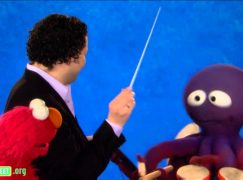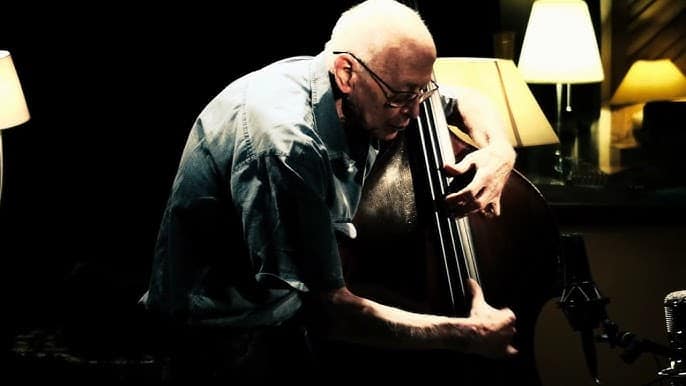A feast of new music in Salonen’s last season
OrchestrasSan Francisco Symphony has rolled out 2024-25.
Nothing timid about these selections:
Nico Muhly’s new piano concerto (Sept. 27–28), John Adams’s piano concerto After the Fall (Jan. 16–19, 2025), Anna Thorvaldsdottir’s new cello concerto (May 15–17, 2025), and new works by Xavier Muzik (Feb. 21–23, 2025) and Gabriella Smith (June 6–8, 2025).
Other contemporary composers on the subscription concerts for the season include Thomas Adès, Dai Fujikura, Gabriel Kahane, Magnus Lindberg, Missy Mazzoli, Gabriela Montero, Kaija Saariaho, and Salonen (his Cello Concerto).
More here.






I didn’t predict ESP leaving San Francisco for the reasons that he did, but I saw ESP leaving SF one way or another as soon as Gustavo was named MD in New York. He loves LA. Despite the interview, I don’t see him saying no to another MD position if it were offered to him, and wouldn’t be surprised at all if he wound up in LA again.
Stellar programming.
I doubt that EPS and the LAP in the future will ever go beyond “Guest conductor” or “Conductor Emeritus,” but when EPS did begin his tenure with the SFS, partly because of Covid and also because of that organization’s and city’s fondness for MTT, it had sort of a flat, non-celebratory quality about it.
Regardless, for sound quality, and beyond who is or isn’t the SFS’s conductor, Davies Hall isn’t ideal.
“A FEAST OF NEW MUSIC”
A famine of real music.
So like if they were profitable and didn’t actually reduce the number of concerts, if the public were beating down the doors to pay a premium to attend these concerts, if donors were ripping open their pocketbooks and giving millions, if corporate sponsors gave them free stuff and a free tour of Europe, if… Then you couldn’t argue with success.
“So like…” So like this is a way to start a serious sentence?
So like, kinda takes away from your statement.
Some are never satisfied.
Most of the composers write the usual, rather superficial, trendy hip stuff, cultivated in the new music networks, not in the central performance culture. It goes in one ear, and then… uhm… what was the saying again?
Salonen’s own music is quite peculiar: he is a great conductor so he knows how to draw good sounds from the orchestra, but the notes themselves don’t ‘say’ anything. They can be replaced by entirely other notes, randomly, and the effect would be the same. His musical talents are defined by reproduction, not production. If you would play his music on the piano, as a piano reduction, it would sound as meaningless.
That’s a pretty spot on description of his music and the vast majority of contemporary compositions: they make a big impression while you’re listening to it but then are immediately forgettable.
Rare is a piece you want to, much less need to, hear twice.
The bragging rights go to those who can say they heard it first, or played it first, the world premiere, the US premiere, the West Coast premiere, the SF premiere… And it goes straight to their bios, Salonen and the SFS premiere 10,000 pieces a year…
The head of the composition department of the Conservatoire National Superieur de Slipped Disc speaks…and the rest of the world moves on.
I wish that were true! I get much more work with all of these players on the phone and they say they immediately knew something must be good if the SD professional musician condems it.
Sally
Attendance at the SFSO concerts is not the problem; it’s growing and now exceeds attendance in the last pre-covid year. It’s not Salonen’s programming that’s driving the SFSO financial difficulties.
Judging from the ‘new music’ compositions I have heard in concerts including those of EPS, I wouldn’t call it a “feast”. More like a bloodbath.
We have a crisis of the composers, not conductors. I have given up waiting for the second coming of a Mozart or Schubert, and will settle for a Cimarosa or Mascagni instead.
The problem is not a lack of talent. There are three reasons for the want of good new music:
1) ideological pushing of music that in one way or another can be presented as ‘modern’, i.e. reflecting our own time, so all the new music which has sensible roots in tradition are neglected, looked down upon; given the very poor state of contemporary culture, reflecting it is not a positive thing;
2) education: composition students are discouraged to learn from music that has survived the ravages of time and still speak strongly to today (modern) audiences and players; so they never develop the skills to make music ‘speak’;
3) programmers everywhere in music life have no idea what is being written today and sail blindly on what ‘people’ say about new music in the established networks, they have no time to think for themselves or do their own serious reseach.
Robert Reilly has written a big tome about his own research of contemporary / 20C composers who have been ignored, neglected, scolded for ‘not being modern enough’, including links to audio samples:
https://surprisedbybeautyorg.wordpress.com/
These discoveries are quite shocking – showing the totalitarian effect of absurd ideologies.
Fortunately modernism has eroded considerably, and superficial silly hip stuff is replacing it, including minimal music (process music) which has its own pleasures but does not fit in the central performance culture and be better restricted to the ensemble culture. In the course of time, 20C serious composers may be dug up, as women and blacks are currently being dug-up, and that would be a welcome contribution to the art form. We have a large desert behind us.
These composers don’t come anywhere close to Mascagni or Cimarosa in terms of commercial success in their eras.
Commercial success means nothing. It’s a bonus, at most. It were the mediocrities who got rich in their own time, not the great: Cimarosa, Salieri, Mascagni, Meyerbeer, Raff, etc. Bach had jobs beneath his true standing, Mozart died relatively poor and had to borrow money in his last years, Haydn began poor and only accumulated some savings through hard work at a feudal court over a long life. Even Beethoven never got what one could call ‘rich’, he got a private grant. Chopin never had any serious money, Berlioz had to survive on music journalism, and if ‘crasy’ Ludwig II had not had his youth infatuation with Wagner’s opera subjects, Wagner would die completely bankrupt. Need to go on?
Impressive. Strange that the conductor would leave given freedom for such innovative programming.
I think he picked the hill to die on.
I’m allowing it.
I don’t mind contemporary music, but Muhly and Mazzoli are ridiculous.
Yes, they reflect our own times.
Esa Pekka Solongagain, California, knows how to please his audience like he pleases his orchestra
Brilliant…I still hope the SFS board will come to reason.
He’s only conducting five programs, and presumably this season was planned before he decided to leave. Odd.
Check your facts. He conducts 12 programs.
It looks like Salonen is conducting ten programs, not five.
I like that he has programmed Beethoven’s 4th Symphony with the Violin Concerto. The 4th Symphony receives so little love compared to the 9th, 7th, 6th, 5th, and even the 3rd.
And the Stravinsky program with Yuja Wang and the Concerto for Piano and Wind Instruments, the Capriccio for Piano and Orchestra, and Movements for Piano and Orchestra is a cool one, especially as it interweaves Debussy’s three movements from Images for Orchestra between and around them. Those three Stravinsky pieces have timings of about 18-19 minutes, 17 minutes, and 9-10 minutes; so something like a total of 44-46 minutes. Might a release on Deutsche Grammophon be in the works? It would be on the very short side for a CD, but not for streaming or downloading.
And Mark Elder has programmed a San Francisco Symphony premiere!: Berlioz’s King Lear overture — at about 13-15 minutes in length, it is and was almost more of a mini tone poem before there was such a thing.
And Kazuki Yamada is making his SFS debut in November 2024. He is also debuting
with The Cleveland Orchestra in April 2025, the New York Philharmonic late this year, and the Chicago Symphony in May of this year. And he is scheduled to again conduct the Seattle Symphony in November of this year. He could be a dark-horse music director candidate for 4 out of 5 of those orchestras.
I have heard that David Robertson is likely not interested in seeking another music director position, but since he is from California, he may very well end up becoming interested in both the SFS music director position and even also that position with the LA Philharmonic.
More of the same old boring names year after year
This is quite baffling to me – as someone who has worked with a lot of contemporary music in the UK, the choice of these composers is extremely tame by any accounts – which simply leads to the questions of 1. surely the SF board weren’t that conservative that they found this type of programming too much for their sentiments and 2. is this what Salonen genuinely calls innovative and adventurous programming, or is he just being shoehorned?
For the record, I have nothing against these composers and enjoy a great deal of the their music. I’m just perplexed as to how this could have lead to such a ‘disagreement’ as it did.
The musicians have started a petition urging the board to retain him: https://chng.it/WtgZRKxq6c
I’m sure the commissions were already on the books so it was too late for the Board and CEO to axe them. They were supposed to do a semi-staged production of Cunning Little Vixen directed by Peter Sellars. Guess the board cut that too along with Soundboxes, Education, touring, and their digital creative team.
How much will actually happen? Orchestra contract expires at the end of November with all signs toward a strike/lockout to follow. SFS is at the brink.
Mark Elder conducts an awesome program January 24/25 , 2025.
A hype of rubbish all these composers.and judging by the recordings , ESP is just as dull and unimpressive like all the huge continuum of Finnish musicians and orchestras.
Definitely not true: Salonen is a very good conductor, especially with music that demands a ‘cool’ and precise approach. His Stravinsky is full of life and energetic rhythm, for instance, and that is not easy to bring about with an orchestra.
It reads like a promotion for Wise Music Classical